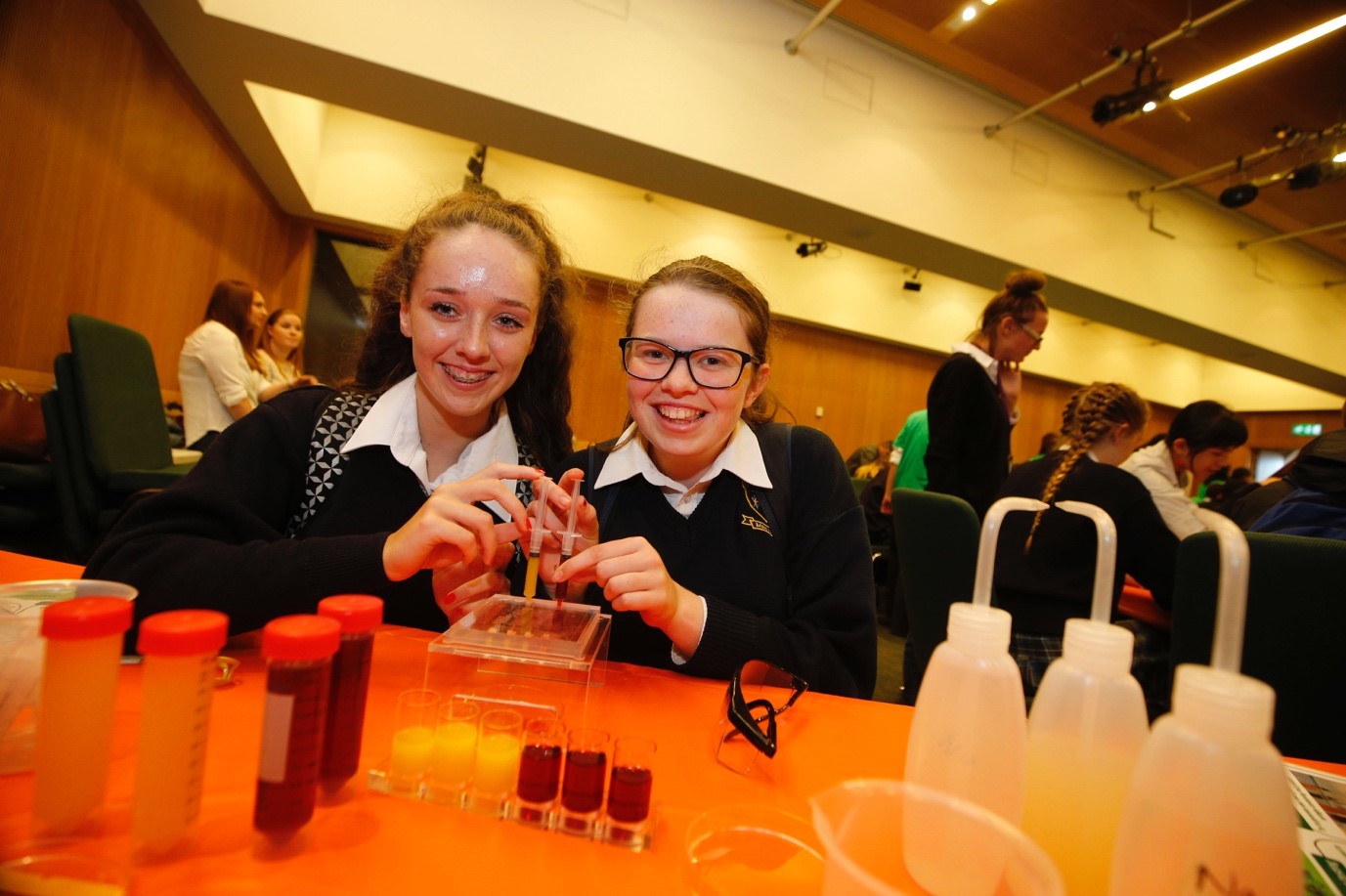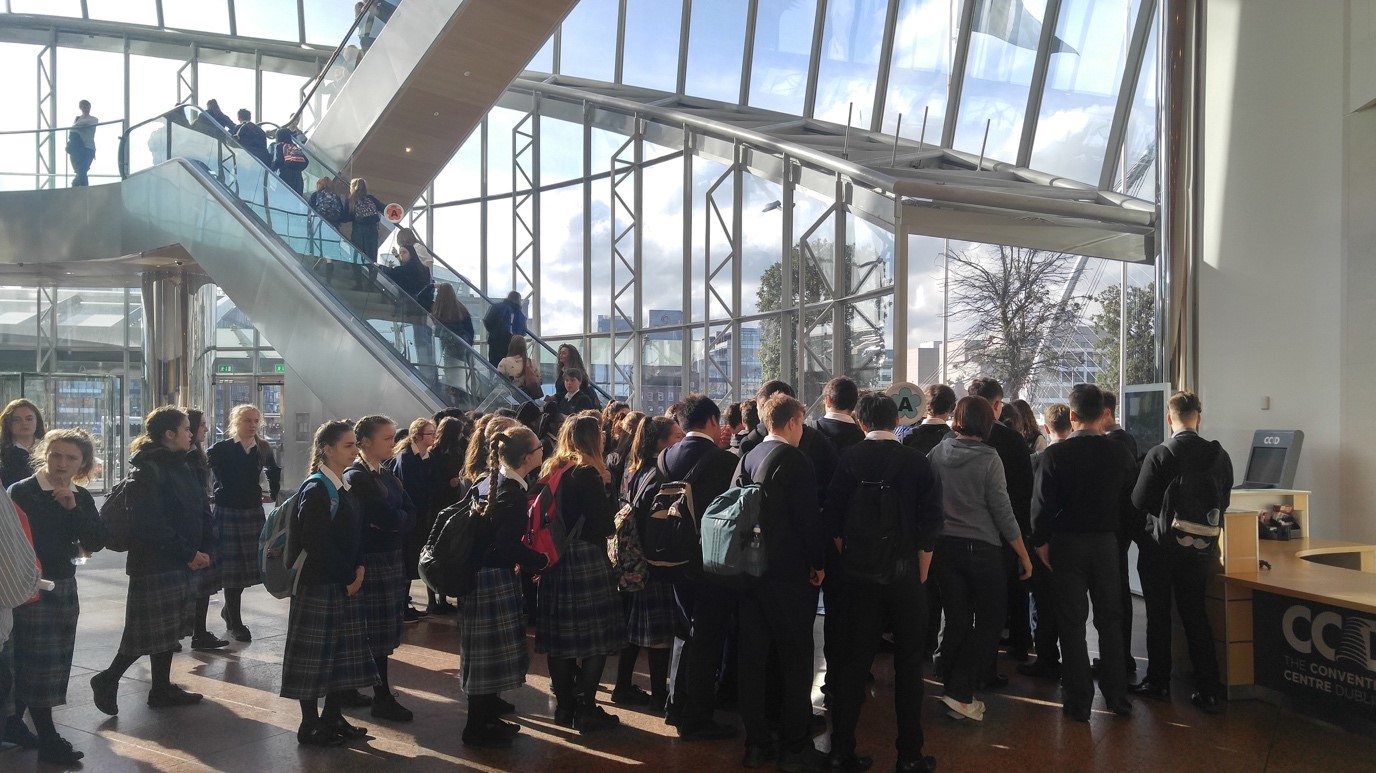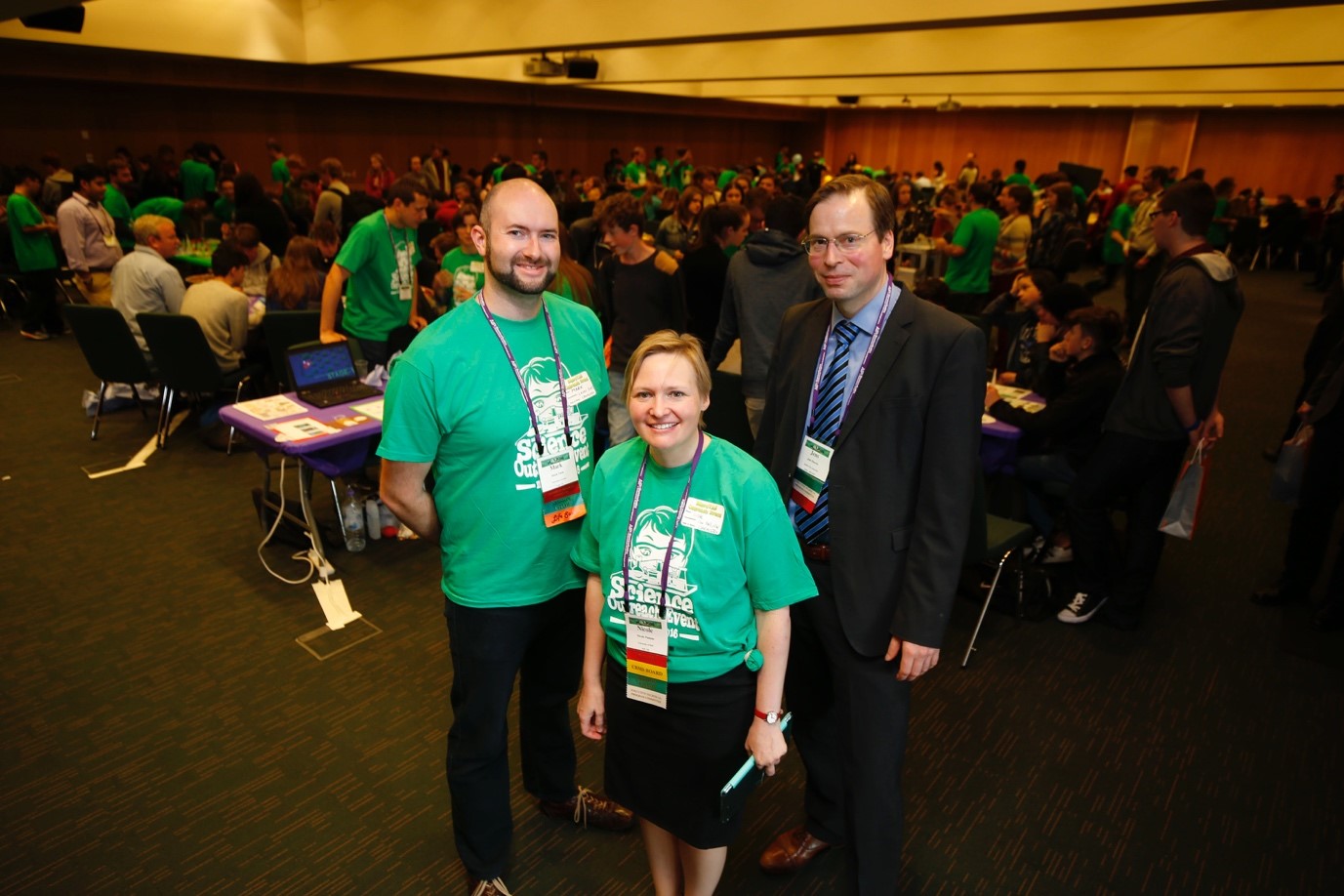At the Tuesday lunch break of this year’s conference for Miniaturized Systems for Chemistry and Life Sciences (MicroTAS) in Dublin, you may have thought the conference audience was getting significantly younger, despite being in its 20th year. Pupils from local schools filled lecture halls along with members of the conference delegation. Conference chairs Nicole Pamme and Jens Ducrée invited attendees to join 500 local pupils for a science outreach event sharing the capabilities of microfluidic technologies. Pupils attended a lecture by Professor Sabeth Verpoorte explaining what microfluidics and lab-on-a-chip technologies are and had the chance to participate in a number of hands-on activities. The event served to increase student interest in STEM as well as a way for researchers to share activities they use for science outreach.
Researchers regularly participate in outreach events to promote an interest in STEM subjects. This is often through universities and community science festivals open to the public. Conferences serve as a great opportunity for international researchers to connect and share their work with other like-minded scientists, but in the past have rarely been opportunities to engage with the general public. For the first time in its history, MicroTAS included public engagement in its 2016 programme.
Pupils from eight local schools participated in a number of hands-on activities highlighting lab-on-a-chip technologies. Such activities ranged from interacting with large-scale versions of chips to trap ping-pong balls (cells); applying fabrication technology like injection molding to produce chocolate treats; to using microfluidic chips that volunteers brought and demonstrated. The outreach event was made possible through financial support from the RSC Outreach Fund, the Institute of Physics (Ireland), and the Analytical Chemistry Trust Fund. Eilish McLoughlin, Director of the Centre for the Advancement of STEM Teaching and Learning (CASTeL) at Dublin City University connected the conference with local schools, and Mark Tarn (Leeds University) coordinated all the conference volunteers. Volunteers represented 20 different universities and companies, highlighting a range of possibilities for careers in STEM.
Professor Pamme, who spearheaded the event, wanted to create an opportunity for researchers to share the different types of educational activities they have developed using microfluidics. Publications using microfluidics as a teaching tool do crop up in the literature (for example: Lab on a Chip, 12, 696-701; Lab on a Chip, 15, 947-957), but many microfluidic outreach and teaching activities do not get published. Professor Pamme hoped that there would be cross-pollination of ideas by having volunteers help out with peers at different institutions. A poster exhibit highlighting all the different activities was on display for the duration of the conference and these will be available from the Chemical and Biological Microsystems Society website (the host organization for MicroTAS).
This year’s outreach event may well serve as a template for future MicroTAS conferences as well as for other disciplines including outreach as a part of their international meetings.













